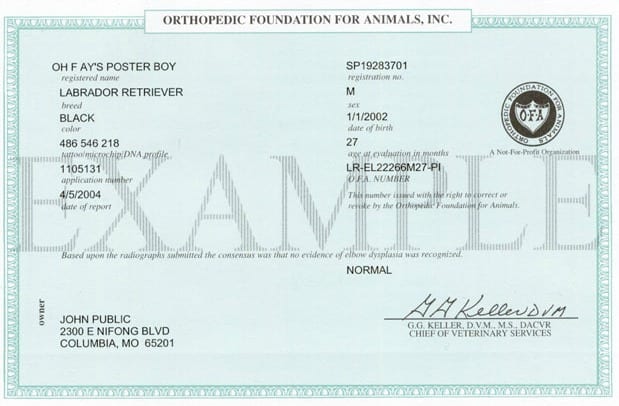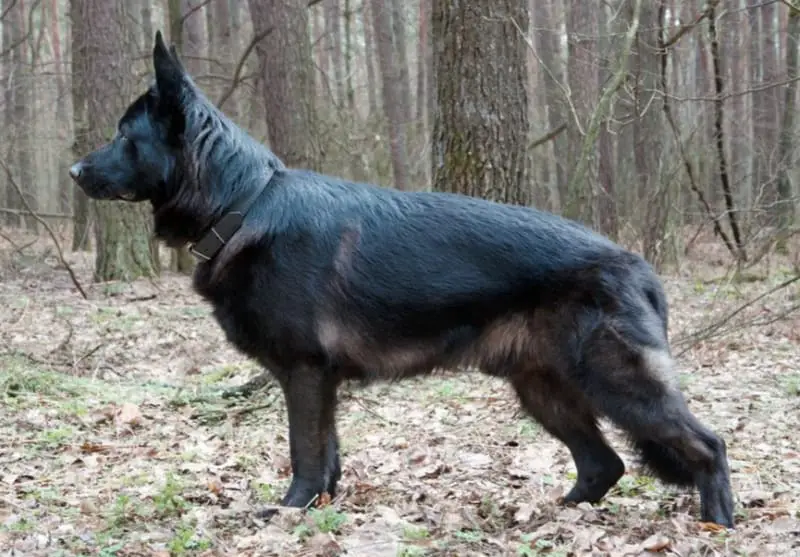All dog breeds have certain traits. The traits may be size, coloring, how well they interact with children, how active they are, their genetic ability to hunt, protect, etc.
Famously known traits of the German Shepherd that attract people to the breed are:
- stable temperament
- striking appearance
- intelligence
- loyalty
- courage
Regardless of your plans or personal goals for your new family member, you want to make sure your German Shepherd acts and looks like a German Shepherd and has the best odds to live a long and healthy life.
All German Shepherds have the potential to be great dogs. Well-breed German Shepherds have the potential to be even more significant than others.
Finding a good breeder can be a challenge, and if you are new to the German Shepherd breed, it may be hard to distinguish good dog breeders from the bad.
Be Prepared With This List
12 Questions To Ask a Dog Breeder
1. Parents AKC registered?
- The answer to this question should never be no if you are in the United States. If their dogs are not AKC registered, keep looking.
2. Parent’s Hip and Elbow Certified?
- Both parents need to be hip and elbow certified, and the breeder should be willing to provide proof of this. If evidence cannot be presented, keep looking.
3. What Working Titles Do the Parents Have? Does the Bloodline Have?
- Titles help ensure dogs have been tested and are breed worthy. Titles may or may not be a deal-breaker for some people.
4. Do You Own One or Both of the Parents?
- Breeders usually own the female and sometimes own the male. Ask to see and interact with the parents.
5. What is Puppy’s Environment?
- Where are the puppies kept and raised? Good dog breeders whelp and keep puppies in a well-thought-out and designated area. Some breeders even keep the puppies inside the house until they get older and are harder to manage.
- If a breeder keeps the puppies unrestricted in their backyard, keep looking.
6. At What Age Do Your Puppies Go to their New Homes?
- Eight weeks is standard for a puppy to go to its new home. Some breeders may let a puppy go to an experienced house at seven weeks.
- If a breeder routinely sends puppies’ home at six weeks, keep looking.
7. What Type of Socialization and Interaction has Taken Place with the Puppies?
- You want a breeder who has lots of interaction with their puppies and socializes their litter with as many things and people as possible.
- The more a breeder does with their puppies during the first eight weeks, the better start your puppy will have.
8. What Do the Puppies Come With? (Vaccinations, Microchipped, Tattooed, etc.)
- Reputable dog breeders send their puppies to their new homes as healthy as possible. Some breeder’s microchip or tattoo their puppies for identification purposes.
9. Purchase Price?
- You won’t know if you don’t ask.
- A good pet quality puppy will run from $800 to $2,000.
- An excellent working quality puppy will start around $1,500 and go up from there.
- The more titles the parents and the bloodline have, the more expensive the puppy will be.
10. Do you Have a Buyer Screening Process?
- Good breeders will screen the buyers of their puppies to ensure that the right puppy goes to the right home.
- Some breeders have a formal application process, and others verbally screen potential buyers.
11. Do You Have a Contract and a Health Guarantee?
- Contracts and guarantees can vary a great deal.
- Be sure that you read the contract, understand the health guarantee, and are comfortable with all aspects of the details.
- A contract protects you the buyer. If you run across a breeder who does not offer a contract or a health guarantee, keep looking.
What is Your Role after the Puppies Leave Your Care?
- Good dog breeders care about their puppies and will want to be updated on achievements or significant health issues.
- A good breeder is a valuable resource who will offer advice and any necessary help throughout your dog’s life.
Tips to Spotting Backyard Dog Breeders
- A backyard breeder is someone who is breeding irresponsibly for the wrong reasons.
- Backyard breeders are not trying to improve the German Shepherd Dog as a breed. They are breeding to make money.
- Backyard breeders usually have untitled dogs from undesirable pedigrees and do no health or temperament testing.
- Backyard breeders do not care what happens to their puppies once they have left their yards. They just want your money and never hear from you again.
Many of these backyard breeders have a good sales pitch and advertise that their dogs are family members raised in the house.
A puppy from a backyard breeder will cost considerably less ($300 to $600) than a well-bred puppy from a reputable breeder.
You will save money on the purchase price from a backyard breeder but will end up paying more in the long run for vet bills due to genetic problems, not to mention the heartache felt from your friend’s suffering.
The old saying “you get what you pay for” holds true.
Pay a higher price for a well-bred puppy. You are not only buying health but peace of mind and lifetime breeder support.
A backyard breeder may seem credible at first glance, but once you ask the 12 questions, the truth will be quickly revealed.



























